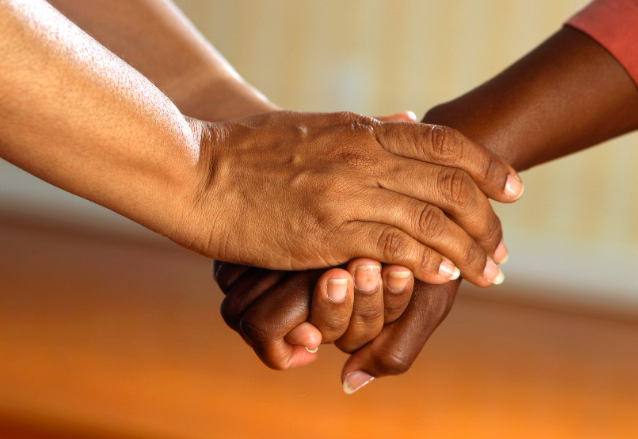Compassion, often reckoned to be the “highest personal virtue,” is held to embody the very essence of humanity. It is widely attributed to play a fundamental role in pro-social behavior, cooperation and human morality. But there is compelling evidence that the “compassionate instinct” to care and cooperate is not the sole preserve of humans. Across species — from elaborate elephant funeral rituals to kindness of dolphins in rescuing swimmers from sharks and guiding stranded whales back to sea — compassion is vividly manifested in a range of settings. As Darwin surmised long ago — sympathy is our strongest instinct.
A revealing experiment by Elizabeth Dunn, published in Science, showed that participants who had spent money on others felt significantly happier than those who had spent the money on themselves. Brain imaging studies reveal that compassion activates the “pleasure centers” of the brain associated with reward. Steve Cole has found that social connection strengthens our immune system as the genes impacted by social connection are the same ones responsible for immune function. We are designed to care and to connect. By helping others we help ourselves, improving our health and even our longevity. “Survival of the kindest” is more apt for the collective flourishing of our species than “survival of the fittest.”
And yet, in innumerable contexts, self-serving interests can override compassion as we are overwhelmed by the stresses, pressures and experiences of everyday life. Loneliness, isolation and depression can, in part, be explained by a decline in social connectedness — 25 percent of Americans say that they have no one in whom to confide. The consequent stress exacts significant costs. There is a 46 percent increase in health care costs associated with workplace stress. By one estimate, stress in the workplace costs corporations approximately $7,500 per employee per year.
However, the good news is that although compassion is a naturally evolved and adaptive trait, it can be deepened by training and elicited quite rapidly. Developments in neuroscience have shown that the brain is plastic and malleable, offering the promise of change, growth and understanding. Interventions such as the Stanford Compassion Cultivation Training Program, a completely secular synthesis of Eastern contemplative practices and Western psychology, can help change how we respond to adversity. The training emphasizes compassion, both to oneself and others, and thereby activates perspective and resilience indispensable to effective decision-making and moral sensibilities.
Research by Northeastern University professor David DeSteno suggests that a sense of connection with others is more likely to make us compassionate.
Compassion training extends beyond merely invoking empathy and concern for others but seeks to infuse the strength to be present with suffering, the courage to take compassionate action, and the flexibility to prevent compassion fatigue. These qualities, in turn, support a broad array of goals such as improving personal and professional relationships and making a positive difference in the world.
Compassion is not limited to the personal level of our individual relationships but can also permeate the interaction of societies and cultures with one another. In substantive ways, the vicious cycles of poverty, ecological catastrophe and wars also arise from the lack of compassion. Of course compassion, on its own, will not totally overcome all that afflicts people, individually and collectively. However, it will certainly dictate the fate of our world in significant ways. As social psychologist and sociologist Rob Willer says, “Given how much is to be gained through generosity, social scientists increasingly wonder less why people are ever generous and more why they are ever selfish.”
See more research from David DeSteno: Act Now
John Hoffmire is director of the Impact Bond Fund at Saïd Business School at Oxford University and directs the Center on Business and Poverty at the Wisconsin School of Business at UW-Madison. He runs Progress Through Business, a nonprofit group promoting economic development.
Pankaj Upadhyay, Hoffmire’s colleague at Progress Through Business, did the research for this article.





